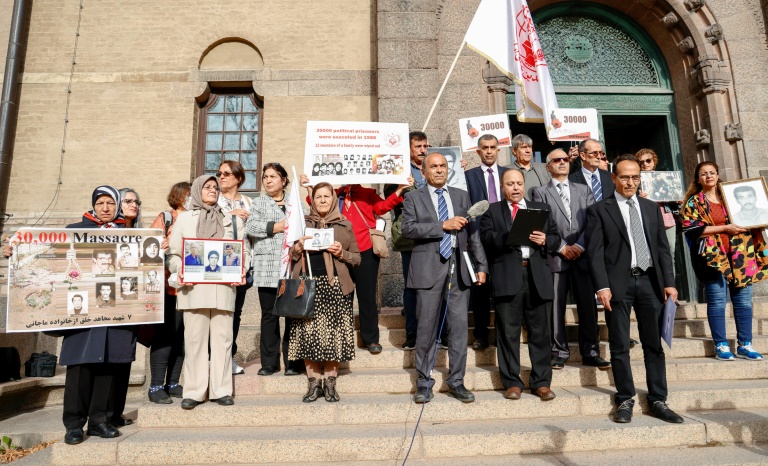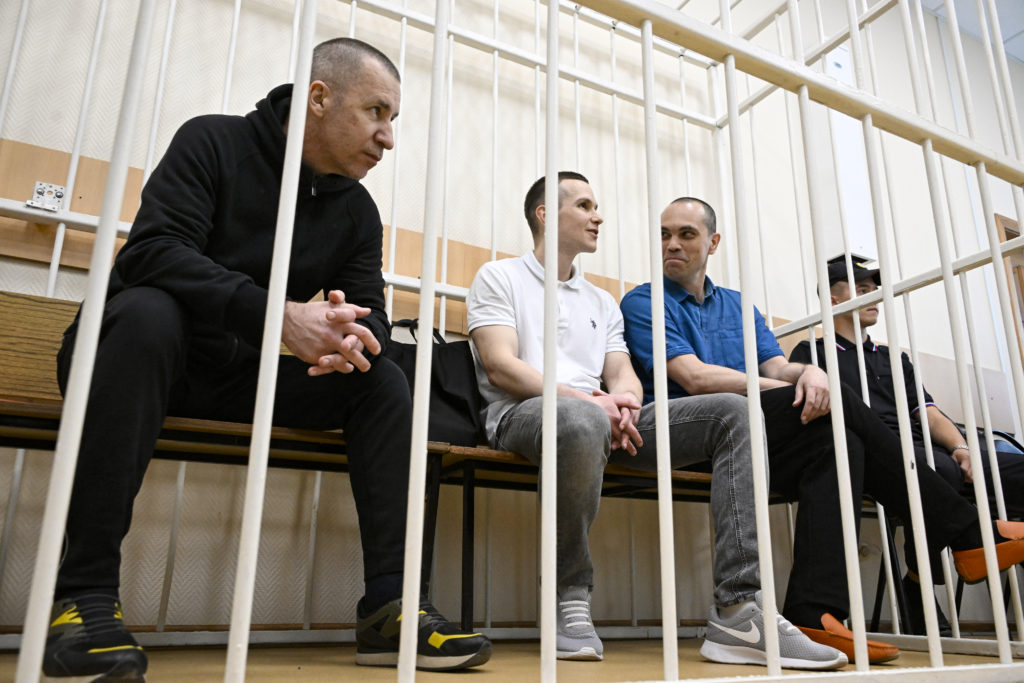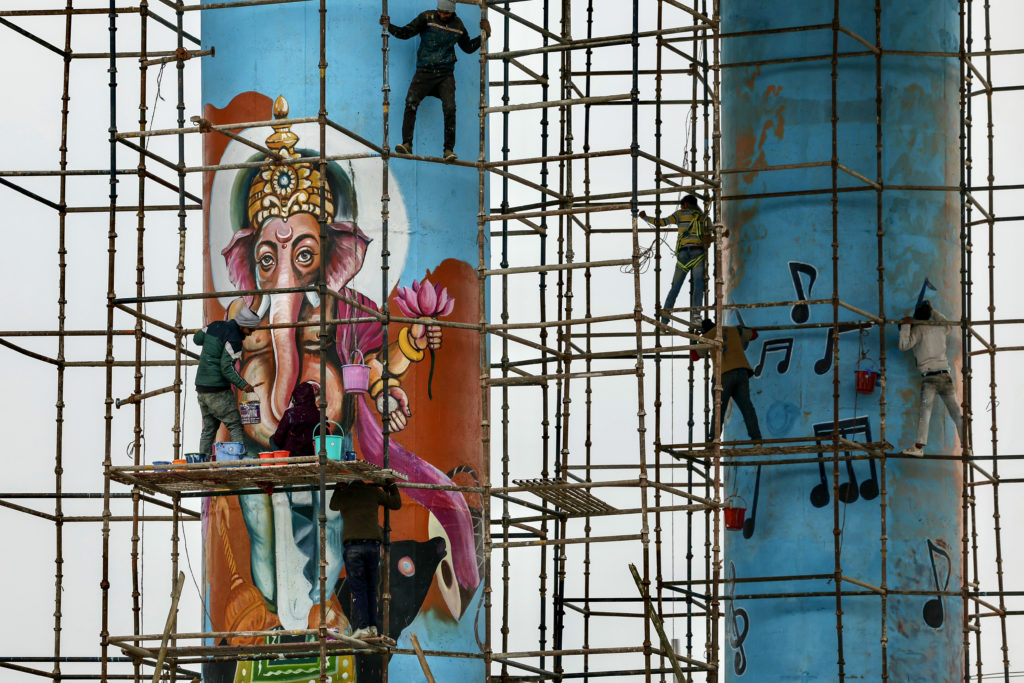A former Iranian prison official accused of handing out death sentences during a 1988 purge of dissidents on Tuesday slammed as “lies” the charges brought against him in a landmark trial in Sweden.
Hamid Noury, 60, has been on trial in Stockholm’s district court since August on charges including murder, crimes against humanity and war crimes.
They stem from the period between July 30 to August 16, 1988, when he was allegedly assistant to the deputy prosecutor of Gohardasht prison in Karaj, near Tehran.
Human rights groups say about 5,000 prisoners were killed across Iran, allegedly under the orders of supreme leader Ayatollah Khomeini in reprisal for attacks carried out by the People’s Mujahedin of Iran (MEK) at the end of the Iran-Iraq war of 1980-88.
Noury took the stand on Tuesday for the first time, as several dozen members of MEK, an exiled opposition group, protested outside the courthouse in central Stockholm.
“I have only four days to respond to all the lies that have been told to the Iranian people,” he told the court, dressed in tan trousers and a white turtleneck, his white beard neatly trimmed.
“Everything we’ve heard is repetitive elements, but when you look at the details you realise it doesn’t hold up. I will put an end to 33 years of lies and accusations,” he said in a statement to the court before questioning, without addressing specifics.
This is the first time any Iranian official has gone on trial for the purge, and Noury will have four days to testify in the case.
The prosecution has alleged that Noury’s participation included handing down death sentences, bringing prisoners to the execution chamber and helping prosecutors gather prisoners’ names.
A mock-up of the prison was installed in the courtroom.
Noury has previously insisted through his lawyers that he wasn’t present for the killings.
“He says he wasn’t there, but we have 58 people who say he was,” Kenneth Lewis, the lawyer for the civil plaintiffs, told AFP.
The trial has already heard testimony from several witnesses, including from members or ex-members of the MEK.
“When I was in the death corridor… I had the chance to see him and I witnessed that whenever they read some people’s names he followed them towards the death chamber,” one of them, Reza Falahi, told AFP.
“After for example 45 minutes or so he came back, and again and again the same story was repeated.”
Sweden’s principle of universal jurisdiction means that its courts can try a person on serious charges such as murder or war crimes regardless of where the alleged offences took place.
– Lured by a cruise –
Noury was arrested at a Stockholm airport in November 2019 following the efforts of justice campaigner and former political prisoner Iraj Mesdaghi.
After compiling an evidence dossier of “several thousand pages” on Noury, Mesdaghi set about luring him to Sweden — where he has family members — with the promise of a luxury cruise.
Prosecutor Kristina Lindhoff Carleson has accused Noury of “intentionally taking the life of a very large number of prisoners sympathetic to or belonging to the People’s Mujahedin” as well as others considered opponents of the “theocratic Iranian state”.
The case is particularly sensitive in Iran, where campaigners accuse current government figures of having a role in the deaths, most notably President Ebrahim Raisi.
The former head of Iran’s judiciary was accused by Amnesty International in 2018 of being a member of a “death commission” which was behind the secret executions.
Questioned in 2018 and 2020, Raisi denied involvement but paid “tribute” to Khomeini’s “order” to carry out the purge.
Khomeini died in 1989.
“I want the international community to come to the conclusion that there is no way out… they have to end the politics of appeasement with this regime,” another witness who now lives in the UK, Ahmad Ebrahimi, told AFP.











